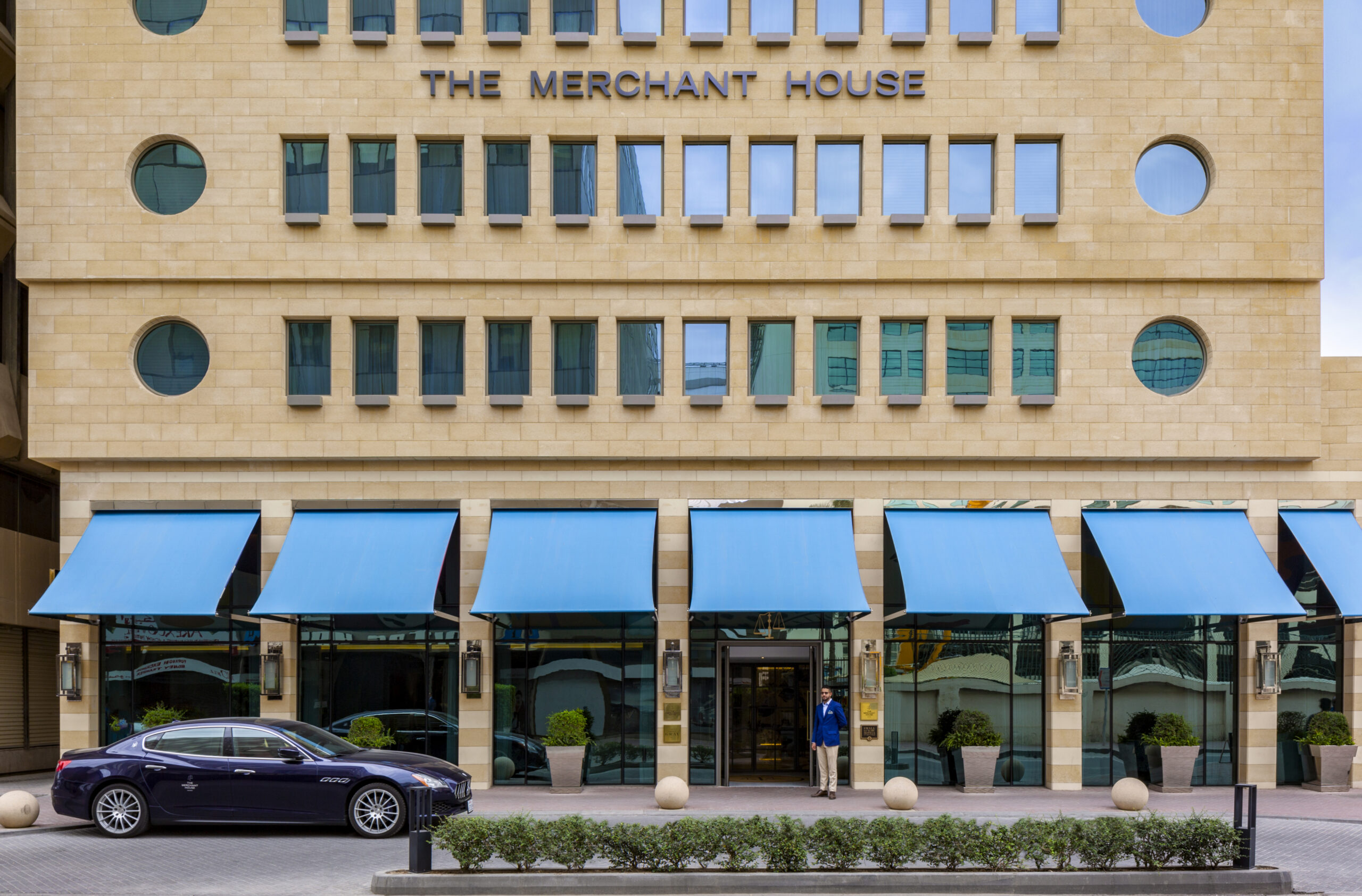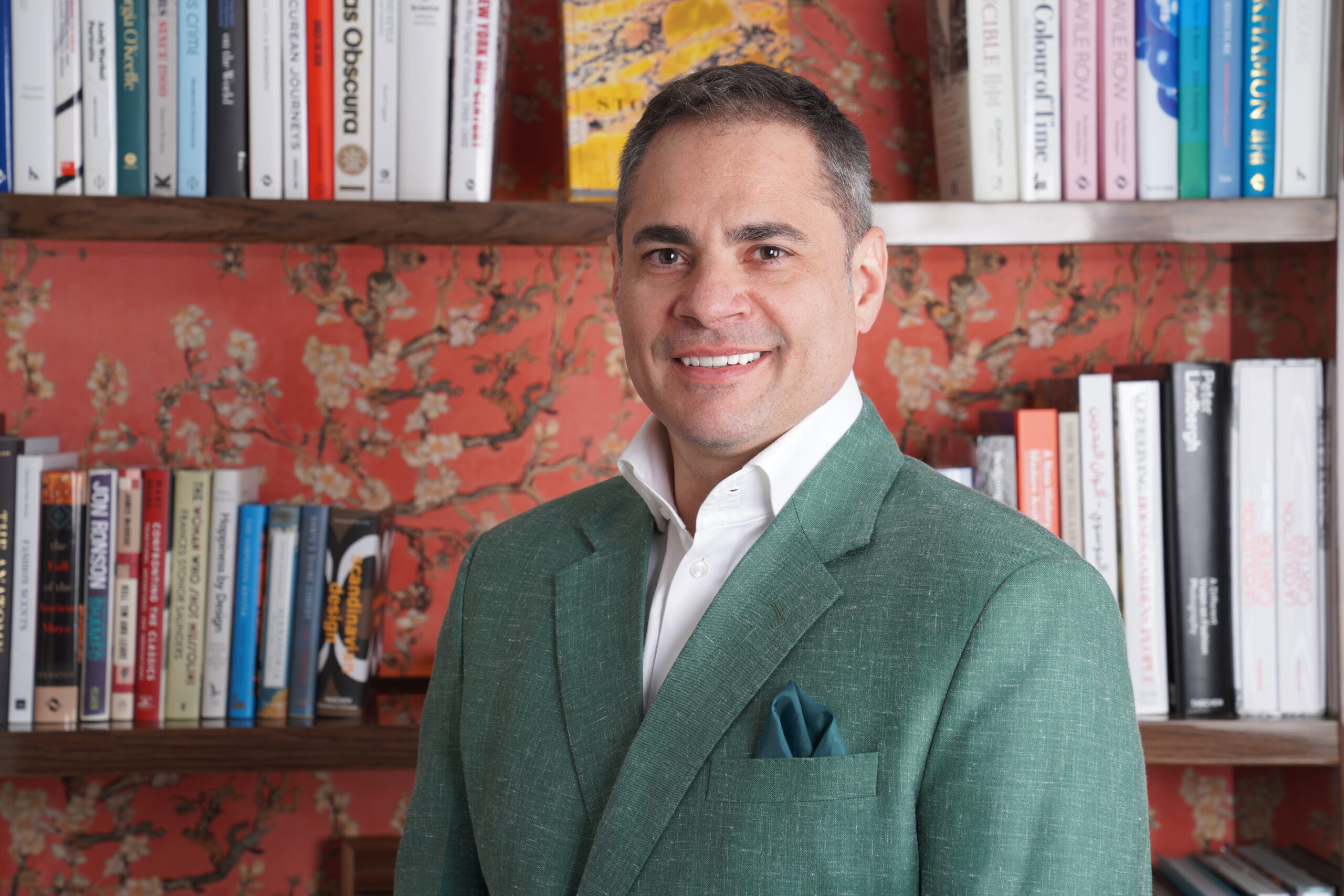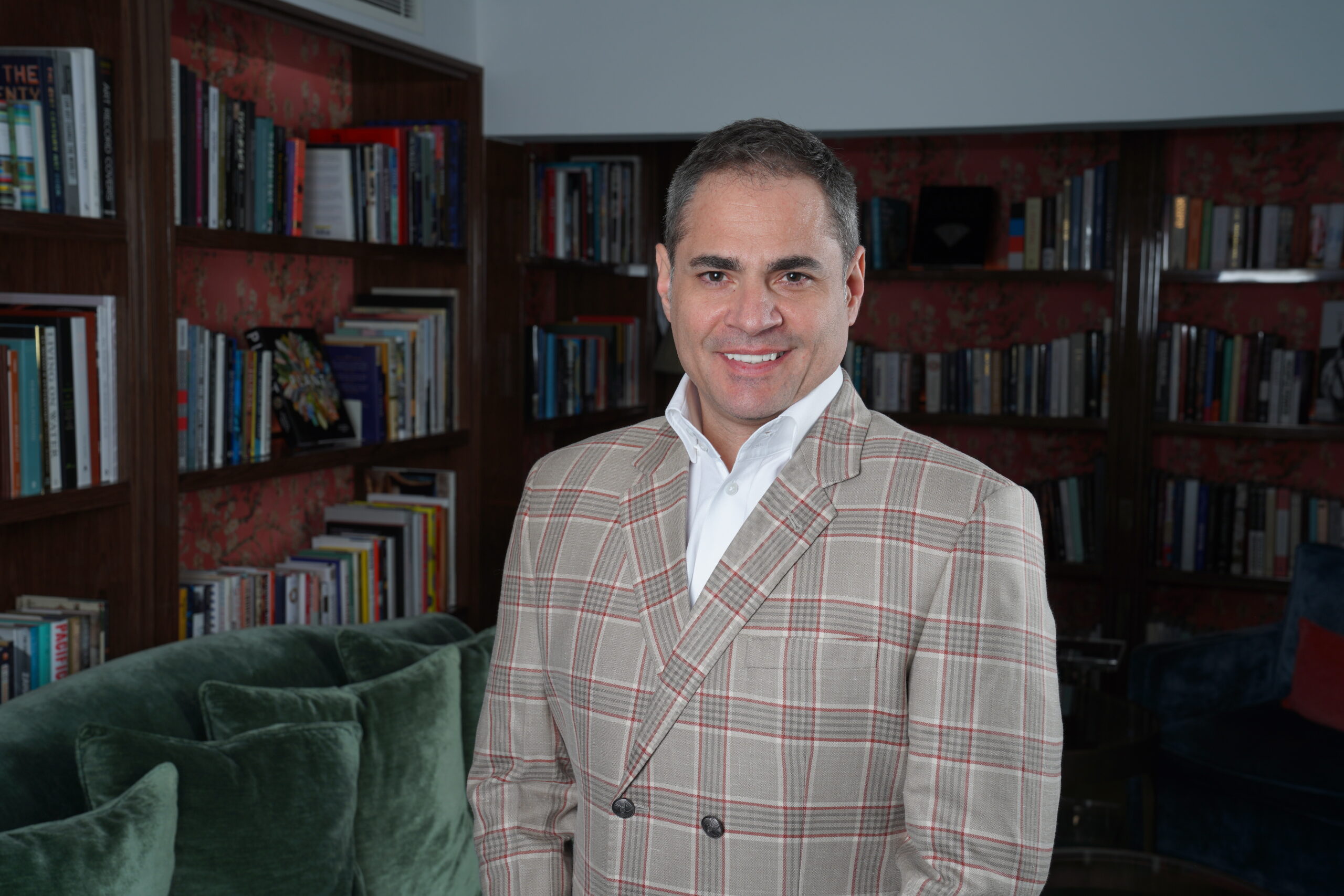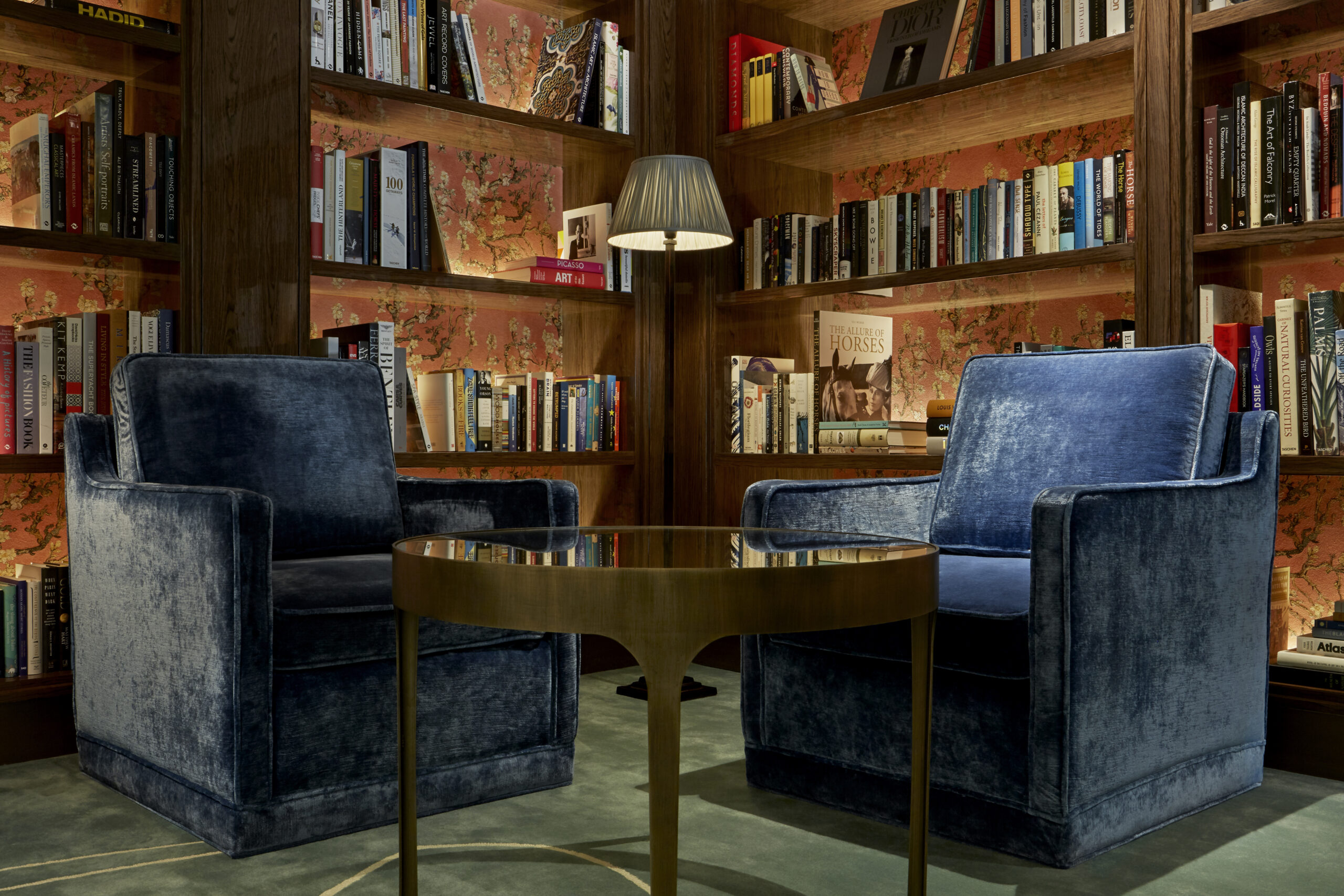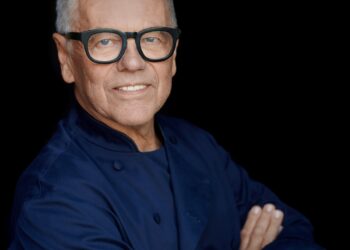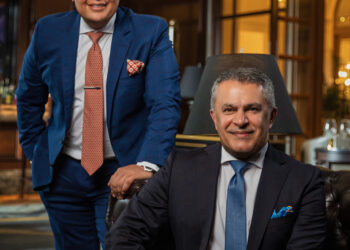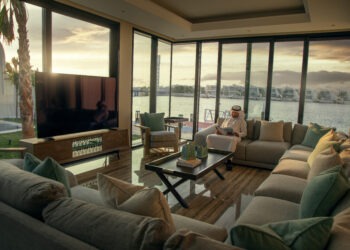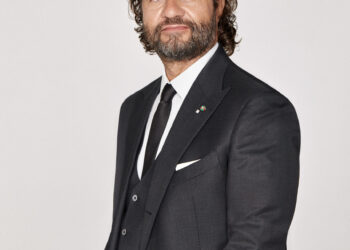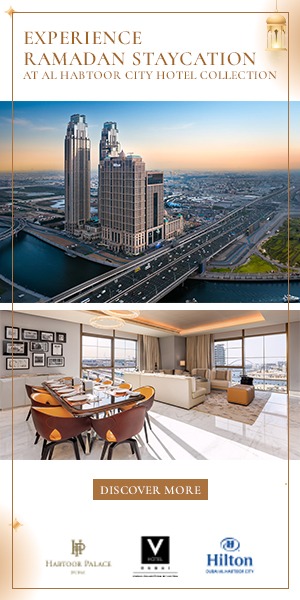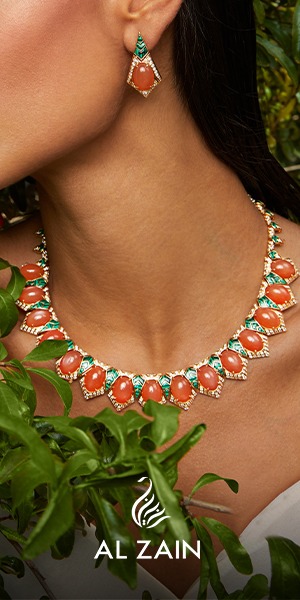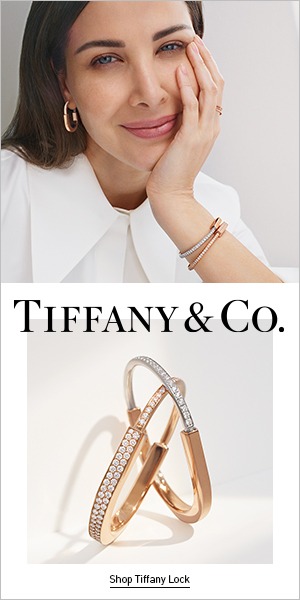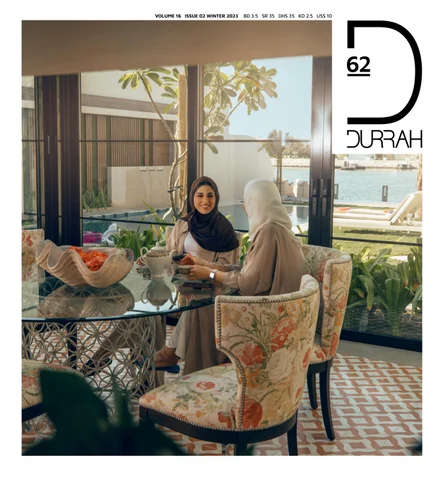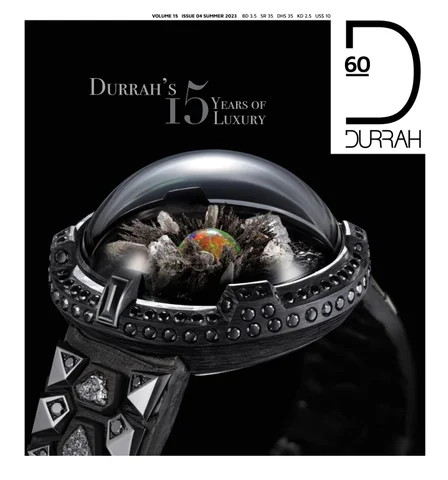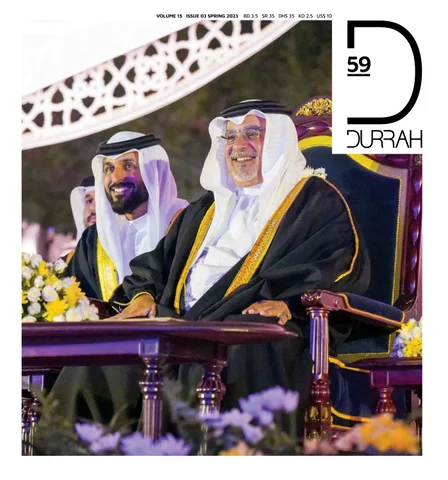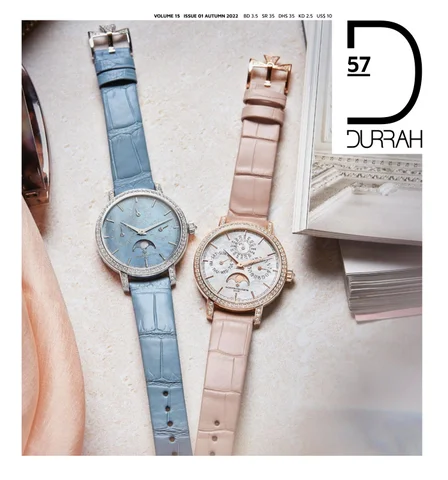The Merchant House General Manager, Riccardo Cocco and renowned international hotelier Gordon Campbell Gray share insights into the hotel’s unique approach to hospitality, their personal journeys in the industry, and what sets The Merchant House apart in the competitive landscape.
INTERVIEW WITH MERCHANT HOUSE GENERAL MANAGER, RICCARDO COCCO
THE MERCHANT HOUSE HAS A UNIQUE IDENTITY/POSITIONING. HOW DO YOU PLAN TO MAINTAIN AND ENHANCE THIS WHILE ADAPTING TO CHANGING MARKET TRENDS?
To enhance The Merchant House’s standing as a cultural hub, I intend to deepen our engagement with the local community by hosting exclusive events in collaboration with Bahraini artists and cultural institutions, promoting the island’s unique heritage. Simultaneously, I will leverage digital marketing to showcase our boutique offerings, engaging a wider audience with compelling storytelling that highlights our unique ambiance
and service.
The Merchant House is known for its personalized service, and I plan to continue building on this, offering bespoke experiences that align with individual preferences, from art tours to curated dining, solidifying our reputation as a destination for tailored luxury. I will also continue expanding eco-friendly practices that resonate with our environmentally-conscious guests, further distinguishing our identity. Regularly analyzing the market and being flexible in our approach will enable us to meet our guests’ evolving needs, ensuring that The Merchant House remains both relevant and enticing.
THE MERCHANT HOUSE HAS A DIVERSE TEAM. HOW WILL YOU APPROACH LEADERSHIP AND FOSTER A POSITIVE AND PRODUCTIVE WORK ENVIRONMENT?
Leveraging my 15 years of experience in the Middle East, I am confident that my approach to leadership at The Merchant House will foster a positive and productive work environment. This experience equips me with a deep understanding of cultural nuances and workforce dynamics in the region, essential for leading a diverse team.
My strategy emphasizes cultural sensitivity and inclusion, ensuring all team members feel valued and understood. I plan to focus particularly on the development of the local workforce, building on our success in achieving 100% Bahrainization in our front office team. Open communication will be a cornerstone of my leadership, encouraging
team members to share ideas and feedback freely. This will be complemented by continuous learning and development opportunities, tailored to meet the professional and cultural competency needs of our diverse team. Additionally, recognizing and rewarding hard work and achievements will be key to motivating and inspiring excellence, making The Merchant House not only a benchmark of hospitality but also a preferred employer in the region.
WHAT EXCITES YOU MOST ABOUT THIS ROLE AND ABOUT WORKING AT THE MERCHANT HOUSE? WHAT PERSONAL VALUES WILL YOU BRING TO THE POSITION?
Having the chance to treat every guest uniquely and foster a direct human connection excites me greatly about working at The Merchant House. At a time when the hospitality industry is leaning towards digitalization and streamlined processes, I see a valuable opportunity to implement these advancements without losing the personalized touch that defines exceptional service. Bahrain, with its beautiful landscapes and welcoming community, provides an inspiring backdrop for these initiatives. I am confident that with the company’s support, I can successfully navigate these changes, blending modern efficiencies with the warmth and personal engagement that guests cherish.
INTERVIEW WITH THE MERCHANT HOUSE CREATOR, GORDON CAMPBELL GRAY
WHAT INSPIRED THE UNIQUE CONCEPT AND DESIGN NARRATIVE BEHIND THE MERCHANT HOUSE? AND DID YOU DRAW INSPIRATION FROM SPECIFIC HISTORICAL FIGURES OR EVENTS?
Having visited Bahrain frequently, I was very aware of the absence of boutique hotels. We had the challenge of finding a suitable building, which we eventually did. The building we found was awkward, but we turned all its negative aspects into positives. We aimed to create a little oasis in this part of town, offering an alternative to the big brands. While I acknowledge their quality, we sought to be a bit more special. I’ve created several hotels around the world, recognizing a strong demand for small, intimate hotels that offer personalized care to guests. Our goals were twofold: first, to create a little oasis; second, to beautifully design it while showcasing a stunning art collection. I’m passionate about art, and unlike many hotels that settle for generic decorations, we wanted each piece to be thoughtfully selected, including the art and the library, which actually contains books.
YOU ARE KNOWN FOR SEAMLESSLY INTEGRATING ART INTO YOUR HOTELS. HOW DID YOU SELECT AND CURATE THE ARTWORK AT THE MERCHANT HOUSE, AND HOW DOES IT CONTRIBUTE TO THE GUEST EXPERIENCE?
Art significantly enhances the guest experience, being omnipresent in rooms and common areas alike. For instance, we have notable pieces, by Andy Warhol, placed in unexpected locations like the men’s room. This approach not only surprises guests but also enriches their stay with beauty and culture. Walking into a hotel, I can immediately sense if it’s loved by its attention to detail, which is a testament to its management and not just a corporate rollout. Art, especially in the library, plays a crucial role in this.
WHAT WERE THE MAJOR CHALLENGES YOU FACED IN BRINGING THE MERCHANT HOUSE TO LIFE, AND HOW DID YOU OVERCOME THEM?
The most vivid memory I have is standing in what is now the lobby during a sweltering August day, surrounded by dust and lacking air conditioning, thinking it was the most miserable day of my life. Despite these challenges, including the building’s awkward layout and the difficulty of working through the summer, we transformed
these obstacles into unique features that add character to the hotel. For example, a column in the suite became a distinctive element rather than a hindrance. The quality and detail of the work achieved here are unparalleled, contributing to the hotel’s enduring appeal.
COULD YOU BRIEFLY WALK US THROUGH YOUR CREATIVE PROCESS WHEN DEVELOPING A NEW HOTEL CONCEPT? WHAT ARE THE KEY ELEMENTS YOU CONSIDER?
A crucial aspect is the welcoming atmosphere, which depends on employing genuinely nice people. Beyond that, comfort is paramount, both in terms of physical amenities and interior design. Every detail, from lighting to room blackout conditions, is meticulously considered to ensure guest comfort. This process can be agonizing but
ultimately rewarding.
REGARDING CURRENT TRENDS IN THE HOSPITALITY INDUSTRY, WHAT ARE YOUR THOUGHTS, AND HOW ARE YOU INCORPORATING THEM INTO YOUR PROJECTS?
I generally disregard trends, preferring to chart our own course. However, it’s undeniable that guest preferences evolve, such as a shift towards simpler, high-quality, and sustainably sourced food. This isn’t so much a trend as it is a reflection of how people want to live now.









